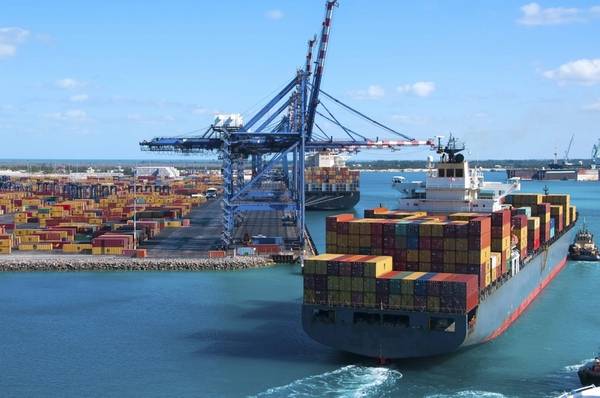For liner operators, light at the end of a tunnel, for owners, just another train
At the behest of their backers, tonnage providers are being forced to exchange hope for action, while for operators the worst may just be over, says Maritime Strategies International (MSI).
The latest phase of mass consolidation continues to see the container shipping industry sailing in uncharted waters and has emphasized the extent to which liner companies are having to restructure their business models in order to survive.
In its latest quarterly Container Market Report, MSI concludes that the actions taken by liner companies, both in terms of consolidating service provision and also redelivering chartered tonnage, mean that the worst of the downturn is over for the globally competitive operators.
Much of the self-help being undertaken by the liner industry is piling pressure onto the already beleaguered charter owners, MSI said. The recovery in freight rates has been in part a result of the redelivery and subsequent idling of vessels under charter owner control, while the consolidation of liner capacity implies the potential for greater operating efficiency and a concomitant reduction in demand for vessels.
“Overlaid on this negative backdrop is, in our view at least, a greater commitment to action with banks increasingly prepared to take haircuts to get values to reasonable levels,” said MSI Senior Analyst James Frew. “Owners have now been pushed past simply using hope as a strategy for recovery and instead are looking at alternatives. Even the more conservative tonnage providers are being prodded into action, with Costamare’s recent announcement of an equity raise a notable shift in attitude.”
This restructuring and recapitalization of the industry is being complemented by the textbook approach of heavy scrapping and scarce new orders. In this respect the industry appears to be doing what it can to help itself, but it remains to be seen whether this will be sufficient. Ultimately, according to MSI, the industry requires trade growth to dig itself out of the hole, but in the short term the dynamics favor liner companies over charter owners.
“If maintained and if accompanied by a sustained recovery in demand, this trend will lay the foundations for a gradual recovery in earnings post-2017,” Frew added. “However, behind the headline trends persistent obstacles to reducing supply remain in place, whilst 2017 scheduled deliveries remain a major roadblock to a swifter recovery.”
Meanwhile, the liner industry is being reshaped, with consolidation having major repercussions on the mainlane alliance trades and across the global network. The reformation of the industry is not only taking place against the backdrop of slow trade growth; it is being driven by it. Since supply side adjustments are the only mechanism the industry has within its control to improve fleet utilization, it is a lever the industry is grasping with increasing desperation.




